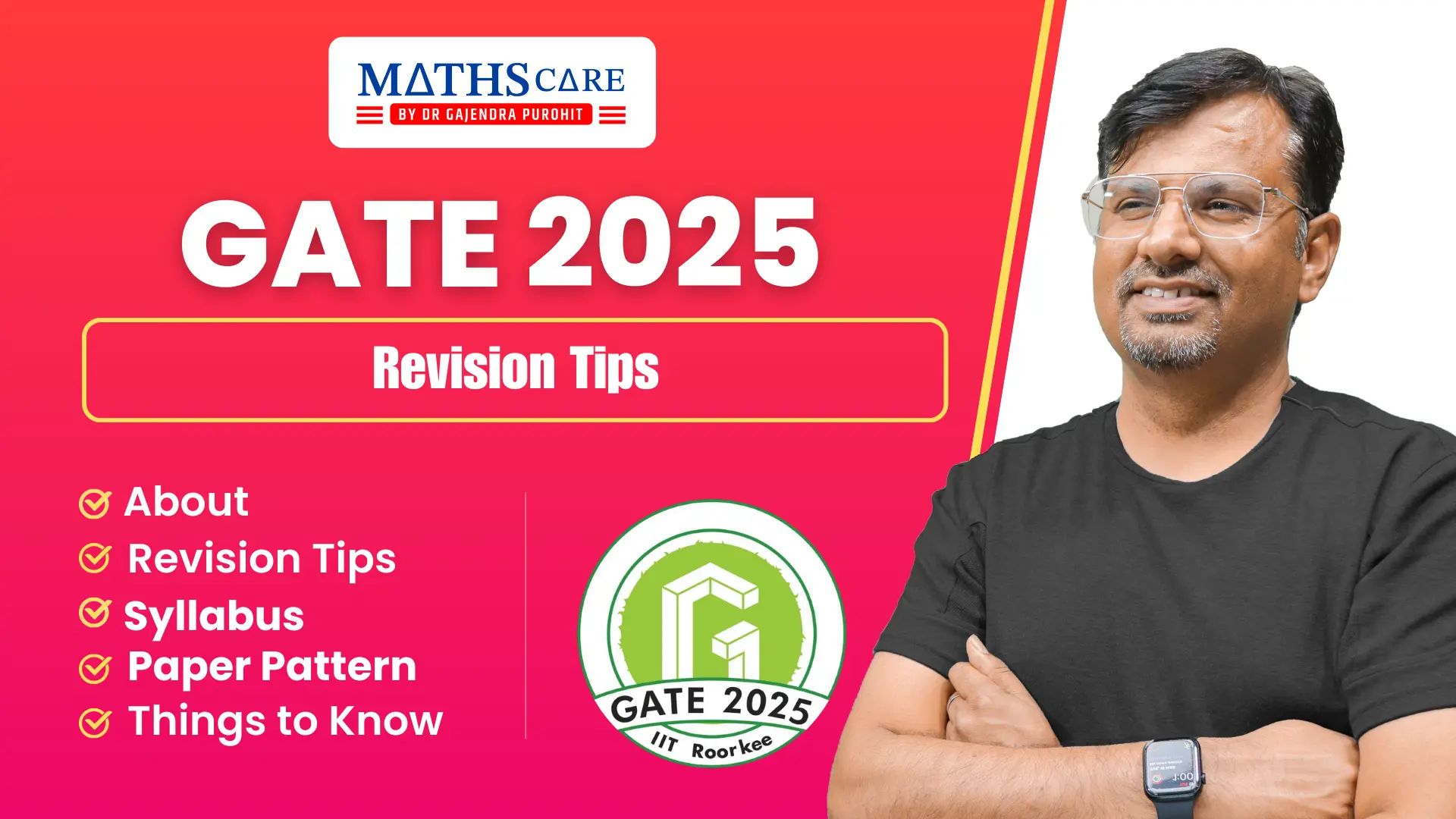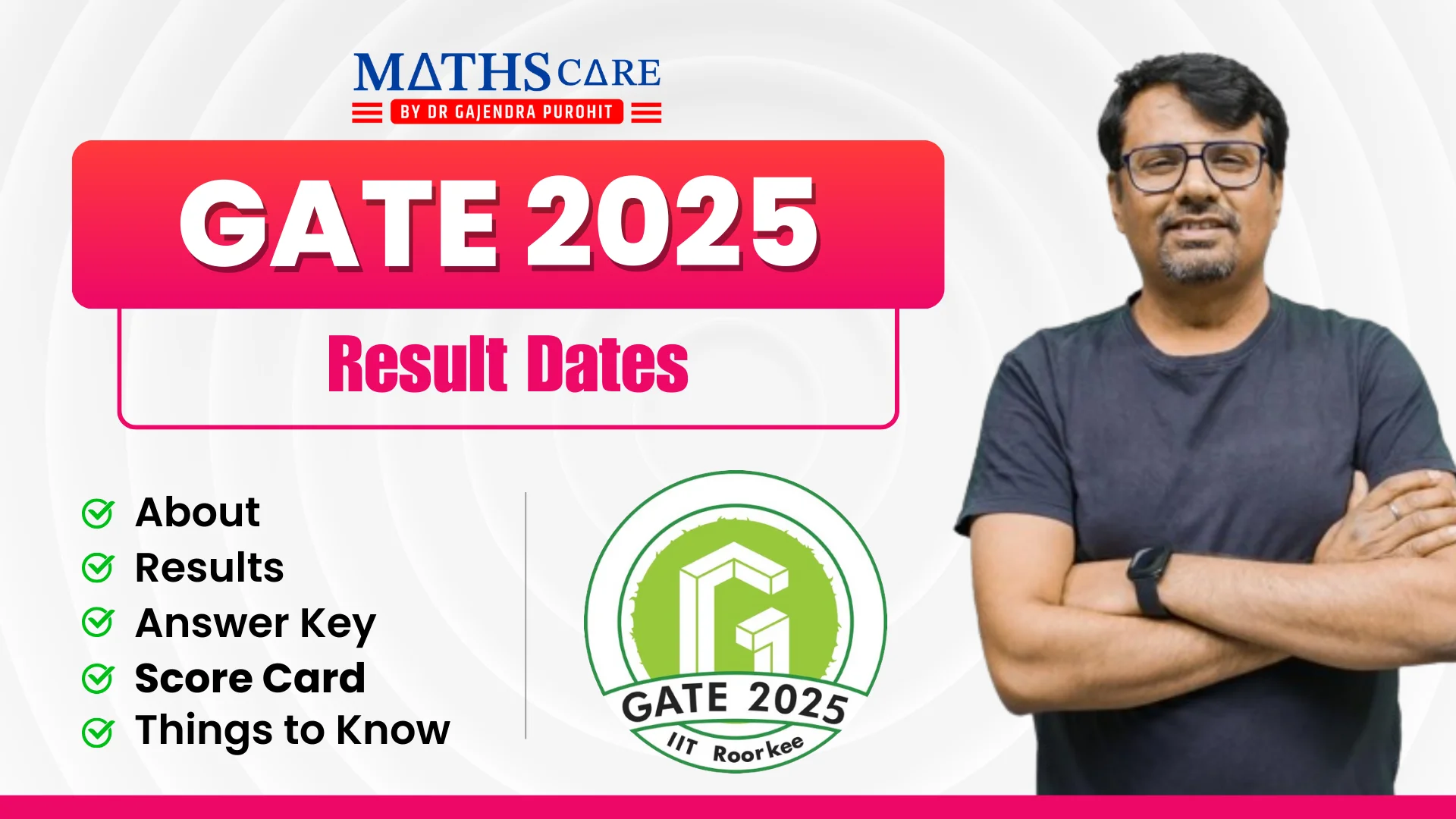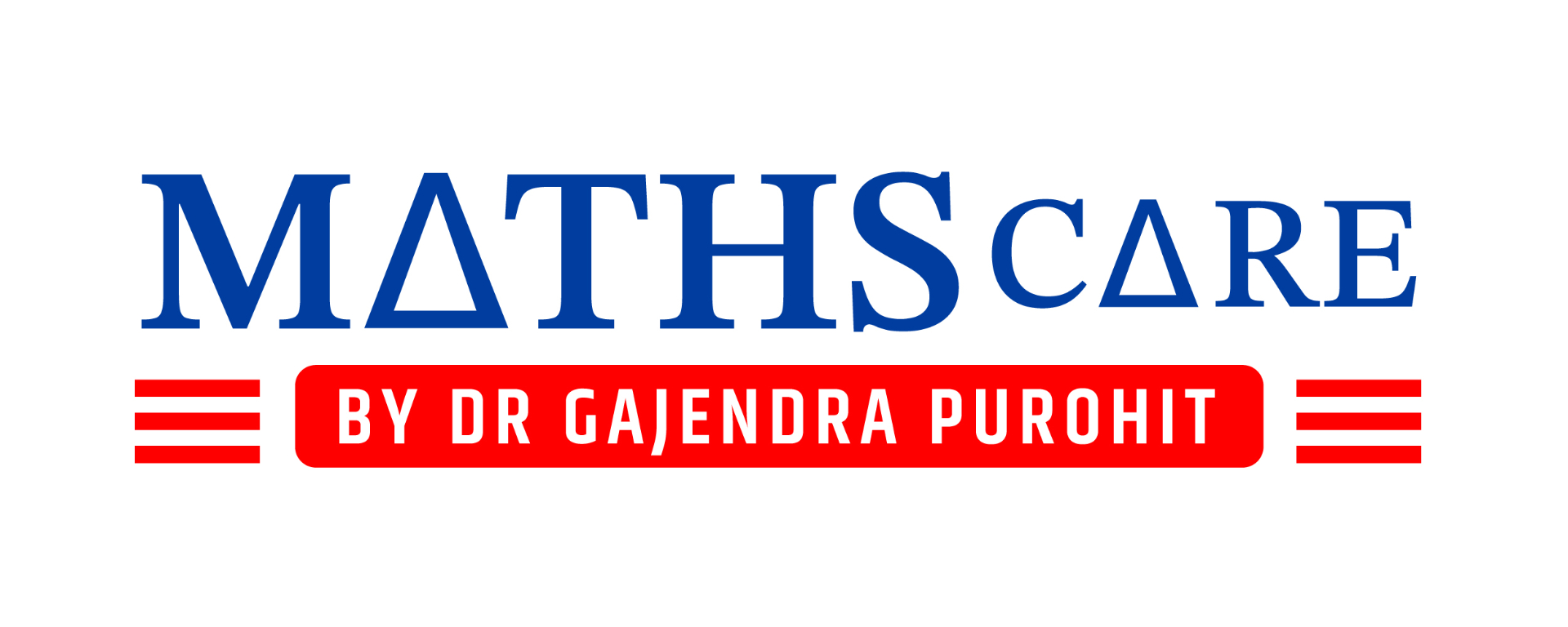GATE 2025 Revision Tips
GATE (Graduate Aptitude Test in Engineering): The Graduate Aptitude Test in Engineering (GATE) is one of the most prestigious examinations in India, aimed at assessing the knowledge and understanding of undergraduate-level subjects in engineering, technology, architecture, and science. For those aspiring to join postgraduate programs or secure PSU jobs, GATE is a crucial milestone. With the GATE 2025 exam fast approaching, a focused and systematic revision plan can be the difference between success and failure.
This blog will provide an overview of GATE 2025, including its eligibility criteria, syllabus for Mathematics, marking scheme, paper pattern, and tips for effective preparation and revision. These insights will help candidates devise a robust strategy to excel in the exam.

About GATE 2025
GATE, conducted jointly by IISc Bangalore and seven IITs, is a national-level examination that evaluates candidates for their proficiency in undergraduate-level engineering, technology, and science. The score obtained in GATE is valid for three years and is used for admission to M.Tech, M.Sc., and Ph.D. programs, as well as recruitment by Public Sector Undertakings (PSUs).
In GATE 2025, candidates can appear for one or two papers from a list of 30 subjects, including Mathematics, Computer Science, Civil Engineering, and more. The exam is conducted in an online mode (CBT) and comprises multiple-choice questions (MCQs), multiple-select questions (MSQs), and numerical answer type (NAT) questions. The GATE scorecard is an essential credential for higher education and professional opportunities.
Eligibility Criteria for GATE 2025
To apply for GATE 2025, candidates must meet the following eligibility criteria:
Educational Qualification: Candidates should have completed or be in the final year of a bachelor’s degree in engineering, technology, architecture, science, or humanities. This includes B.E., B.Tech., B.Sc., B.Arch., or equivalent degrees. Those in the third or higher years of their undergraduate program are also eligible.
Age Limit: There is no upper age limit for appearing in GATE, making it accessible to candidates from various stages of their careers.
Nationality: Indian nationals and candidates from other countries, such as Nepal, Bangladesh, Sri Lanka, and Ethiopia, are eligible to apply.
Number of Attempts: There is no restriction on the number of attempts, allowing candidates to appear multiple times to improve their scores.
Eligibility verification is crucial during the application process. Candidates must provide accurate details and upload the required documents to ensure their applications are accepted.
GATE 2025 Syllabus: Mathematics
The Mathematics syllabus for GATE 2025 is comprehensive and designed to test both fundamental and advanced concepts. It includes the following topics:
Linear Algebra: Matrix algebra, systems of linear equations, eigenvalues, eigenvectors, and diagonalization.
Study resources: Focus on understanding the concepts of vector spaces and linear transformations.
Revision tip: Solve problems involving matrices and eigenvalues to enhance clarity.
Calculus: Limit, continuity, differentiation, integration, and applications of calculus.
Study resources: Emphasize practice with integration techniques and applications in real-world problems.
Revision tip: Work on past GATE questions related to integral calculus for better preparation.
Differential Equations: First-order equations, linear differential equations, and systems of differential equations.
Study resources: Pay attention to solving differential equations using standard methods.
Revision tip: Revise topics like homogeneous equations and partial differential equations with examples.
Real Analysis: Sequences, series, convergence, and functions of real variables.
Study resources: Master the fundamentals of limits, continuity, and differentiability.
Revision tip: Review convergence tests and their applications in series problems.
Complex Analysis: Analytic functions, Cauchy-Riemann equations, and contour integration.
Study resources: Use diagrams to understand complex mappings and functions.
Revision tip: Solve problems related to residue theorem and applications of contour integration.
Candidates are advised to follow the official GATE syllabus provided by the organizing institute for detailed preparation.
Tips for Revision
Revision is an integral part of the preparation process. Here are some detailed tips to make your revision effective:
Create a Revision Schedule: Prepare a daily timetable that allocates specific time slots for each subject and topic. A structured plan ensures comprehensive coverage of the syllabus.
Example: Dedicate mornings to theory-heavy subjects and evenings to solving numerical problems.
Tip: Stick to the schedule and avoid procrastination to maximize productivity.
Use Flashcards and Notes: Summarize key formulas, concepts, and definitions on flashcards or in concise notes.
Example: Highlight important equations for quick reference.
Tip: Use these notes for quick revisions before the exam.
Attempt Previous Papers: Solve at least 10 years’ worth of past GATE papers to understand the exam’s pattern and difficulty level.
Example: Practice under timed conditions to simulate the real exam environment.
Tip: Analyze your mistakes and focus on weak areas to improve accuracy.
Review Weak Areas: Identify topics that require extra effort and focus on improving them.
Example: Spend additional time on topics like complex analysis or numerical methods if they seem challenging.
Tip: Seek help from mentors or peers to clarify doubts.
Take Short Breaks: Avoid burnout by taking regular breaks during study sessions.
Example: Follow the Pomodoro technique (25 minutes of focused study followed by a 5-minute break).
Tip: Use breaks to relax and recharge without engaging in distracting activities.
Tips for Preparation
Effective preparation requires a balanced approach. Here are some expanded tips:
Understand the Exam Pattern: Familiarize yourself with the GATE paper format, including the types of questions and their weightage.
Example: Section-wise analysis helps in prioritizing high-weightage topics.
Tip: Use official mock tests to understand the paper layout and time constraints.
Choose the Right Study Material: Refer to standard textbooks and online resources for each subject.
Example: Use “Higher Engineering Mathematics” by B.S. Grewal for Mathematics preparation.
Tip: Avoid relying solely on coaching materials and expand your resources.
Join Study Groups: Engage in discussions with peers to exchange knowledge and clarify doubts.
Example: Online forums and social media groups can provide valuable insights.
Tip: Avoid distractions and focus on productive discussions.
Focus on Numerical Problems: Numerical ability is critical in GATE. Practice problems that involve calculations and data interpretation.
Example: Work on topics like matrix algebra and integral calculus.
Tip: Use online calculators to practice numerical questions within the exam’s guidelines.
Stay Updated: Keep track of announcements and updates from the official GATE website.
Example: Download the official GATE brochure for accurate information.
Tip: Set reminders for important dates and deadlines.
GATE 2025 Marking Scheme
The marking scheme for GATE 2025 is as follows:
Section A: 1-mark and 2-mark MCQs with negative marking for incorrect answers (-1/3 for 1-mark and -2/3 for 2-mark questions).
Section B: MSQs with no negative marking. Candidates must select all correct options.
Section C: NAT questions with no negative marking. Answers are numerical values entered using a virtual keyboard.
Understanding the marking scheme is essential to strategize time management and minimize negative marking.
Paper Pattern
The GATE 2025 exam will have the following structure:
Duration: 3 hours
Total Marks: 100
Number of Questions: 65
MCQs: Multiple-choice questions
MSQs: Multiple-select questions
NAT: Numerical answer type questions
The exam is conducted in a computer-based test format. Familiarity with the interface through mock tests is recommended.
Expected Difficulty Level
GATE 2025 is expected to be moderately difficult, with questions designed to test conceptual clarity, analytical skills, and numerical ability. The difficulty level varies across subjects, with Mathematics often requiring a deeper understanding of theories and applications. Candidates should focus on problem-solving and time management to overcome the challenges.
Conclusion
GATE 2025 is a significant milestone for aspiring engineers and scientists. With a well-structured preparation and revision plan, candidates can achieve their desired scores and unlock opportunities for higher education and professional growth. By following the tips and strategies outlined in this blog, you can boost your confidence and approach the exam with a positive mindset. Remember, consistency, perseverance, and self-belief are the keys to success.
GATE FAQS
Upload the side of your ID showing your photo, name, date of birth, and ID number.
No, GATE application fees are non-refundable.
It depends on seat availability in your requested city. There’s no guarantee.
No, your application will be marked defective, and you will be asked to correct it.
Yes, you can add a second paper during the correction window, with an additional fee.
BEST OFFERING COURSES FOR YOU
BEST BOOKS FOR IIT JAM/ CSIR-NET
BUY BOOKS ON OUR APP
RECENT POSTS

GATE Career Opportunities (Updates)

GATE 2025 Financial Assistance









